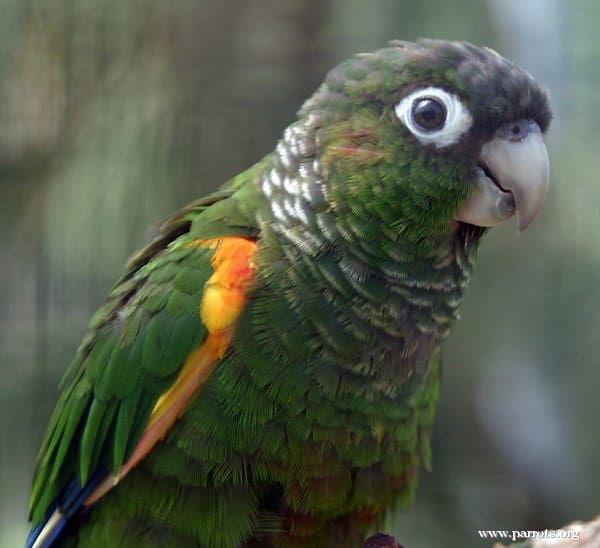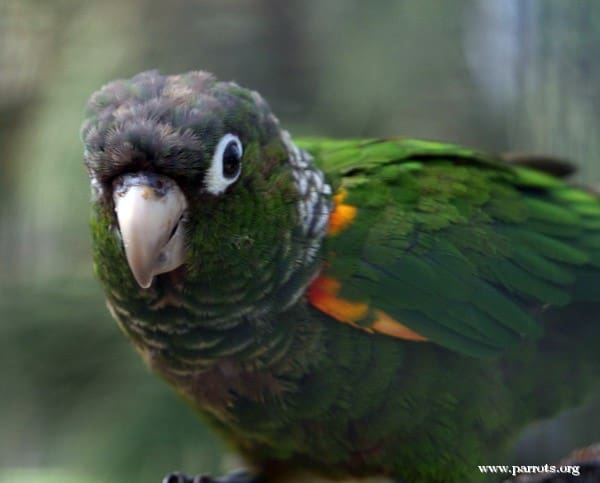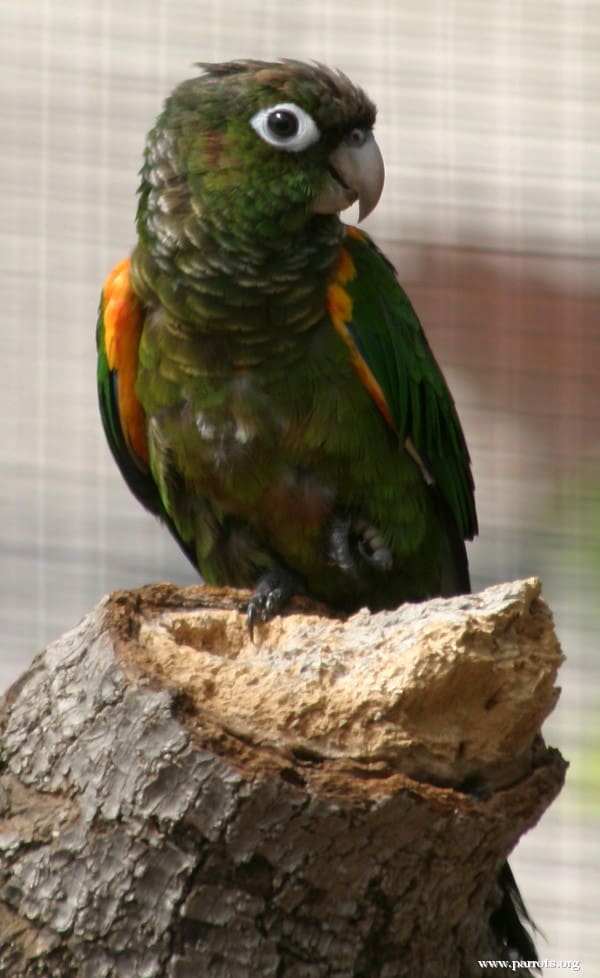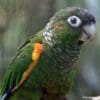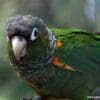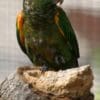Fiery-shouldered Conure
Also known as:
Fiery-shouldered Parakeet
Also known as:
Fiery-shouldered Parakeet

Pyrrhura

egregia
Size:
26 cm (10.1 in)
Weight:
75 g (2.6 oz)
Subspecies including nominate:
two: P.e. egregia, P.e. obscura
Colour Adult:
P.e. egregia: Both adults green breast with yellow/white and brown barring; brown/red centre of abdomen; yellow bend of wing, carpal edge and lesser underwing coverts, marked with orange/red; brown/red uppertail, dark grey undertail. Beak horn-coloured. Eye ring bare and white. Eye brown.
P.e. obscura: Both adults as in egregia, but with darker green upperparts and slightly darker green underparts; brown/red on abdomen minimal or absent.
Colour Juvenile:
P.e. egregia: Green carpal edge and lesser underwing coverts; breast has less barring.
Call:
Calls made in flight are described as harsh and grating, heard before the birds are seen.
Fiery-shouldered Conure – AVoCet Cornell Lab Macaulay Library
More Information:
Content Sources:
CITES
BirdLife International
Cornell Lab of Ornithology/Birds of the World
Parrots: A Guide to Parrots of the World, Juniper and Parr, 1998
Parrots of the World, Forshaw, 2006. 2010 edition
Parrots in Aviculture, Low, 1992.
Lexicon of Parrots, Thomas Arndt. A Guide to Popular Conures As Pet and Aviary Birds, Dorge and Sibley, 2001.
Captive Status:
Rare
Longevity:
Up to 35 yrs
Housing:
Aviary or suspended enclosure, minimum length 2 m (6.5 ft).
Diet:
Fruit such as: apple, pear, orange, banana, pomegranate, cactus fruits, forming about 30 percent of the diet; vegetables such as: carrot, celery, green beans and peas in the pod; green leaves such as: Swiss chard, lettuce, sowthistle, dandelion, chickweed; spray millet; small seed mix such as: canary, millet, and smaller amounts of oats, buckwheat, safflower, and a little hemp; soaked and sprouted sunflower seed; cooked beans and pulses, boiled maize and complete kibble.
Enrichment:
Provide bird-safe, unsprayed flowering, fir, pine or willow branches, wooden and vegetable tanned leather toys, heat-sterilized pine cones, puzzle/foraging toys, swings, ladders and ropes.
Nest Box Size:
Vertical box 10″ x 10″ x 28″ (25.4 cm x 25.4 cm x 71 cm).
Clutch Size:
4-5
Fledging Age:
7 weeks
Hatch Weight:
—
Peak Weight:
—
Weaning Weight:
—
World Population:
Unknown but described as fairly common, decreasing.
IUCN Red List Status:
Least Concern
CITES Listing:
Appendix II
Threat Summary:
Not globally threatened. A BirdLife “restricted-range” species. Common, but there is considerable habitat loss in egregia’s range in Venezuela, but not of subspecies obscura. Trade appears to be non-existent. Is considered to have a high dependency on forests and tree cover is estimated to have declined by 1.2% within its range over the past 10 years. It is therefore tentatively suspected that this may have led to a 1-19% (estimate <5%) decline in the species’ population over the same time frame.
Range:
P.e. egregia: Highlands of W Guyana, SC Venezuela, and N Brazil.
P.e. obscura: SE Venezuela.
Habitat:
Found from 700-1800 m (2296-5904 ft) in mountain forest and forest edge, including tall, dense secondary growth areas. May also visit village gardens and parks.
Wild Diet:
Feeds on fruits.
Ecology and Behaviour:
Seen in pairs or small family groups during breeding season; at other times in noisy flocks of up to 20 birds. Resident. Difficult to spot while feeding or resting in dense foliage.
Clutch and Egg Size:
4-5 eggs.
Breeding Season:
March-June
Related Links:
—
